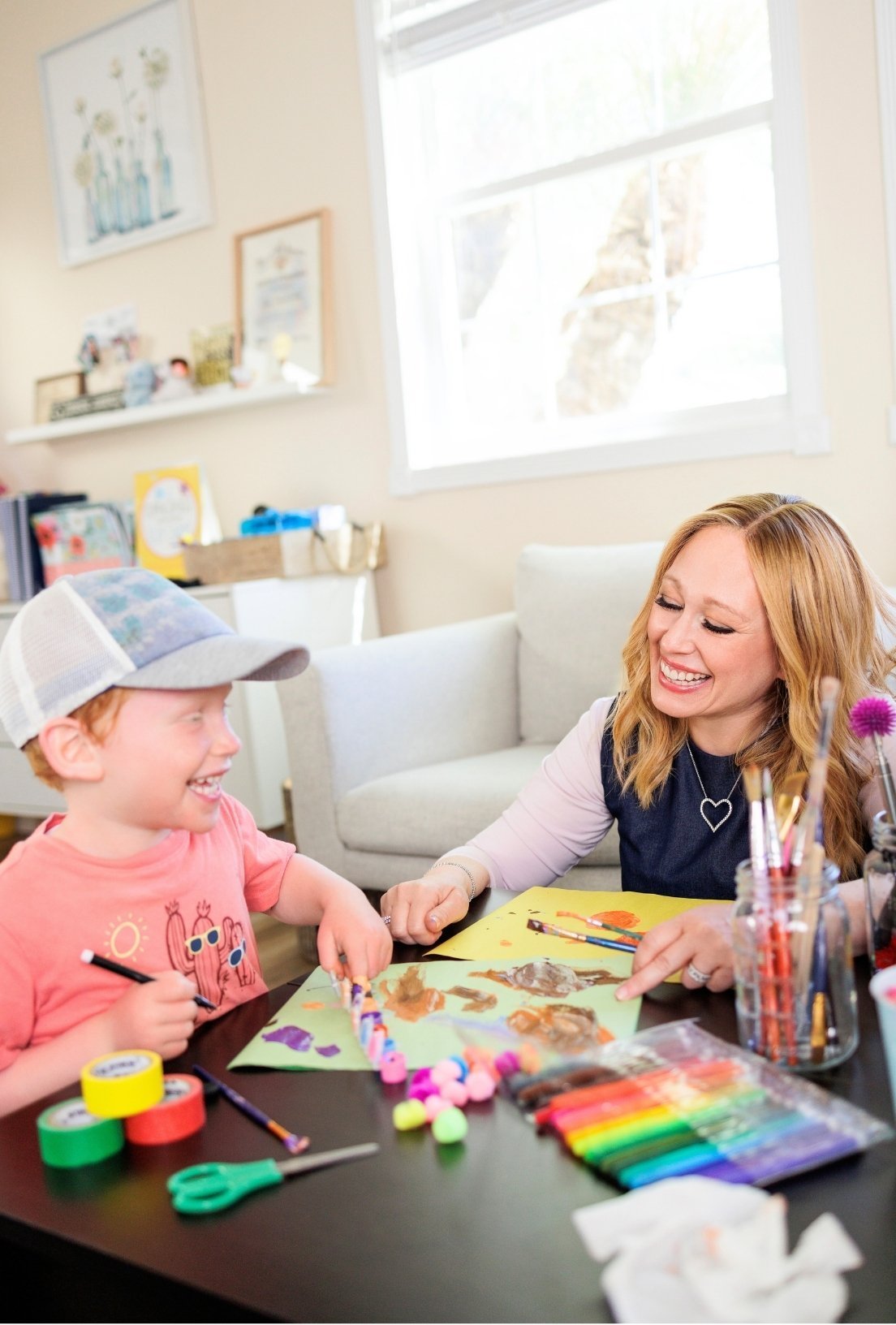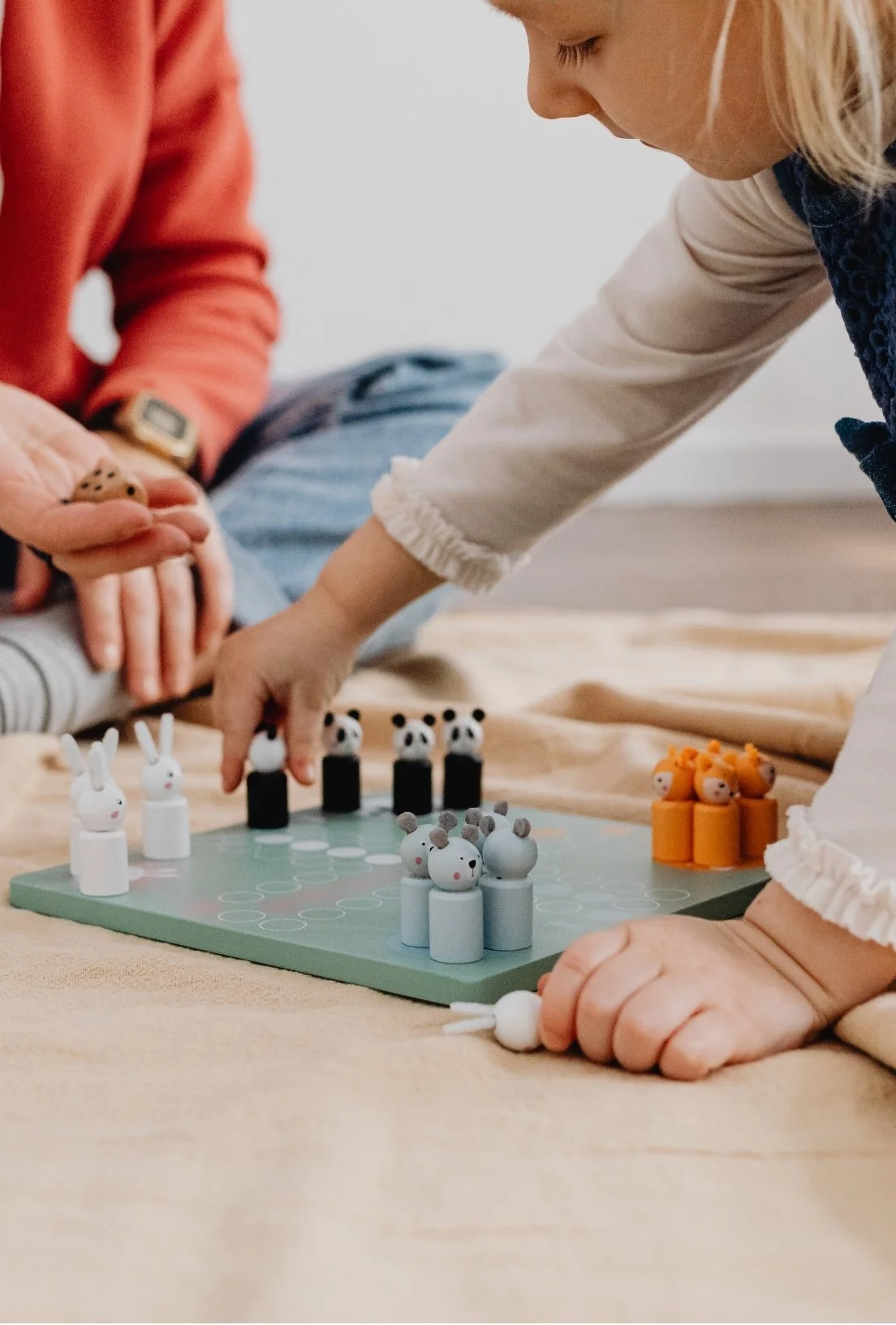Dialectical Behavior Therapy for Children (DBT-C)
Get the superpowers you need to parent your “supersensor” child.
Join our DBT-C parenting group, where parents of highly sensitive and intense kids learn a clinically proven parenting approach that really, truly works.
12-week group session
Goodbye, endless therapy. Hello, time and cost-efficiency.
No child therapy required
Parenting-focused. No child participation necessary.
Designed to empower you
Learn to cope better and feel better as you parent better
Parenting a child with BIG emotions feels impossible.
I’m with you, Mom and Dad.
You’re exhausted. Drained. Finished. Out of ideas. Ready to give up–for the 10th time this week.
Parenting a child with BIG feelings and behaviors is HARDDD. You want them to be happy, to thrive.You want to be the best parent you possibly can. You’ve read the books, drawn dozens of charts, paid the professionals, tried the meds.
But whatever you do, they still:
Greet every little problem with BIG emotions and behaviors
React speedily, often zooming instantly from 0 to 100 – and take too long to calm down
Can’t wait, chronically demanding relief from boredom
Behave aggressively, struggling to get along with others
Fight you when it comes to all things hygiene
Constantly drag you into power struggles
Make everyday home life stressful and draining

If it feels like your child needs parents with SUPERPOWERS…
you’ve found the perfect place to learn them.
What is DBT-C?
DBT-C is an evidence-based therapy that helps deeply feeling kids manage their big feelings, big behaviors and big thoughts.
The 5-minute crash course
"Children who need the most love ask for it in the most unloving ways."
—Dr. Russell Barkley
That's why DBT-C was developed.
01
It's in their wiring
Some children are born more more sensitive and more reactive than others. These kids have Big Feelings and even bigger behaviors.
Kids who struggle with big feelings and big behaviors are often deeply-feeling, sensitive kids. "Good enough" parenting just isn't enough for these supersensor kids.
02
The Social Piece
Deeply-feeling kids are often viewed as "too" reactive and "too" sensitive.
It can look as if they’re trying to push our buttons. So we come down hard on them with correction, judgement, criticism and even consequences. Which just confirms what they already know--that we don't really understand them. And, usually makes the behavior worse.
03
The Transactional Cycle
As parents struggle to figure out their child's confusing and exasperating behaviors, their deeply-feeling, supersensor child inadvertently puts pressure on the family environment. And the environment (parents and siblings) push back.
04
The problem
Kids with Big Feelings begin to believe that their feelings are "too much," that their reactions don't make sense and that they are "difficult."
Psychologists realized this cycle doesn't just make life miserable for both parent and child. It also erodes the child's mental health, leaving them highly likely to develop clinical mental illness or addictions down the line.
05
DBT-C breaks the cycle
First, it helps parents understand and accept their supersensor's emotional world. They learn to validate their child's experiences and create an environment where kids are ready, willing and capable of change.
06
Next come the emotion regulation tools
Parents learn how to model healthy coping and problem-solving skills. Which means that not only do they get to teach their kids these skills – they also get to use them themselves when parenting gets tough!
07
Long-term change and wellness
Finally, parents learn to heal the gaps in their child's emotional world. They learn how to foster self-love, a healthy sense of safety, and a feeling of belonging in their children. This way, they can succeed beyond limiting difficult behavior and raise healthy kids prepared for happy lives.
There’s nothing easy about parenting a supersensor. And DBT-C is making countless parents’ lives easier.
You’ve tried every other trick in the book.
Here’s why DBT-C might actually work:
It strengthens the parent-child relationship
Raising a supersensor can take a huge toll on the parent-child relationship. Traditional therapy focuses on building a relationship between the therapist and child. In DBT-C, the focus is on strengthening your relationship with your child, helping you create the validating, authentic and trusting relationship you dreamed of.
01
It targets–and heals–the root of the issue
DBT-C isn’t another set of parenting techniques that worked for everyone else but you. It’s a journey that helps you understand and treat the core of your child’s difficulties. Beyond simply stopping difficult behaviors, it builds the skills they need to function like the healthy, awesome people they really can be.
02
03
It puts parents in the driver's’ seat
No need to drag a tantruming child to therapy to get results. DBT-C turns parents into their children’s coaches, giving them the tools to treat and guide them throughout life.
In DBT-C, YOU will build the emotion regulation and coping skills to ace this journey and give your child the supportive Mom and Dad they need.
Meet Your DBT-C Therapist
Hi there, I’m Suri.
I get how draining and confusing it is to be the parent of a supersensor. I’m a mom of 4 myself.
I’ve also spent the last 30 years practicing in the fields of education and mental health, guiding children, teens, parents and families dealing with all kinds of behavioral struggles and diagnoses.
As a licensed therapist certified in CBT, TF-CBT, IFS, Somatic Experiencing, PCIT, DBT, Parent Management Training, Brainspotting, Safe and Sound Protocol, SPACE, and, of course, DBT-C, I specialize in treating emotional dysregulation in children. Outside my private practice, I speak at parenting and education conferences across the country, empowering parents with information and tools to raise healthier, happier families. Learn more about me here.
I believe every parent deserves the tools they need to parent their kids calmly and successfully.
That’s why I’m so excited to offer DBT-C parenting groups, where parents like you gain the skills you need to bring calm and confidence into your parenting – and true transformation to your child’s emotional health.
Outside my private practice, I speak at parenting and education conferences across the country, empowering parents with information and tools to raise healthier, happier families.
I believe every parent deserves to tap into their innate power to help their children beat anxiety.
That’s why I’m so excited to offer DBT-C, where parents like you gain the skills you need to bring calm and confidence into your parenting – and true transformation to your child’s emotional health.
01
Join a group
Sign up for 12 one-hour virtual group sessions where you’ll learn how to implement the parenting skills you need to achieve lasting results.
02
Apply your new skills
With the DBT-C skills group plus thorough post-session worksheets supporting you, you’ll have all the tools you need to start making real change in real life.
03
Experience the difference
You’ll know exactly what to do. You’ll have the tools to stay calm and positive. And as you apply them, your home life will start improving – while your child becomes a healthy person ready for a happy life.
Get started
Things can be so much better. Really.
Learn the skills you need to make "better" happen for you.
Book free consult
Book free consult
faqs
Frequently asked questions
-
DBT-C (Dialectical Behavior Therapy for Children) is an evidence-based therapeutic approach designed to help children manage their emotions and behaviors. It combines cognitive-behavioral techniques with mindfulness practices to improve emotional regulation, interpersonal skills, and distress tolerance.
-
Parent involvement is crucial in DBT-C because it ensures that the skills children learn in therapy are reinforced and supported at home. Parents play a key role in helping their children apply these skills in real-life situations, which enhances the effectiveness of the therapy. DBT-C also puts parents back in the driver's seat so that they can continue to support their children long after their child's relationship with their therapist has ended.
-
Parents play a crucial role in DBT-C. DBT-C maintains that parents are their child's primary instructors, and are in the best position to validate, teach, model, and reinforce effective skills use. In order to prepare parents for this role, parents attend parent training sessions to learn the same skills their child will be learning, enabling them to reinforce these skills at home. Parents may also attend family therapy sessions to improve communication and problem-solving within the family.
-
DBT-C begins with parent training sessions. Often, this is all that is needed. For some children, DBT-C includes individual therapy for the child and family therapy sessions. The therapy focuses on teaching skills in four main areas: emotional regulation, interpersonal effectiveness, distress tolerance, and mindfulness.
-
DBT-C is specifically tailored for children and incorporates a heavy emphasis on parent involvement. While regular DBT focuses on individual therapy for adolescents and adults, DBT-C includes parent training and individual therapy sessions for the child in order to ensure that parents can support their child's progress, stay regulated and model effective responding at home.
-
DBT-C is beneficial for children who struggle with intense emotions, behavioral issues, anxiety, depression, ADHD, and other emotional dysregulation challenges. Basically, if a child has trouble managing BIG emotions, BIG behaviors and BIG thoughts, DBT-C can help.
-
During a DBT-C session, your child will engage in activities and exercises designed to teach them new skills. Sessions may include role-playing, mindfulness exercises, and discussions about how to apply these skills in everyday situations.
-
With DBT-C, parents can expect to see improvements in their child's ability to regulate emotions, handle stress, and interact positively with others.
-
Both DBT-C and CBT are evidence-based interventions that are rooted in cognitive-behavioral approaches and research. CBT focuses heavily on cognitive (thought) restructuring, reframing and challenging, while DBT-C is a more comprehensive approach that incorporates a greater emphasis on behavior change, emotion regulation, distress tolerance, mindfulness and interpersonal effectiveness skills. While CBT is quite effective in treating anxiety and depression, DBT-C may be a better choice if emotional or behavioral dysregulation are areas of concern.
-
Yes! DBT-C targets impulsivity and emotional dysregulation, which are often symptoms of ADHD. Additionally, DBT-C's emphasis on mindfulness can help increase attention and improve executive functioning skills.
-
Supersensor kids share the following characteristics:
They have big reactions to "little" problems or frustrations
They react intensely (big behaviors)
They react quickly, often going from 0 to 100 in a flash
It takes them a while to calm down
-
No worries! The parenting skills group is the most important part of effecting change in your child. While some children do need individual therapy, and others may benefit from therapy, the DBT-C Parent Group alone will help you set the stage for improved behavior and self-regulation. (With the added bonus of an improved parent-child relationship!)
-
If your child struggles with BIG feelings, DBT-C may be right for you! DBT-C has been used successfully to help deeply feeling, "supersensor" kids manage their emotions and their behaviors. DBT-C can be helpful for children diagnosed with ADHD, disruptive mood dysregulation disorder, oppositional defiant disorder, anxiety or depression. An intake session can help determine if DBT-C is appropriate for your child.
-
Supersensor Kids can struggle with:
Avoidance of tasks that require effort
Verbal/physical aggression, suicidal ideation, self-injury
Difficulty with transitions and change
Little tolerance for having to wait
Hyperactivity
Impulsivity
Easily bored and avoidance of new, unfamiliar activities
Trouble with family relationships
Extreme thinking style (rigid thinking, black and white thinking)
Sensory sensitivity
Avoidant of tasks related to personal hygiene
Got questions that weren’t answered here?
Book a 15-minute call with us to find out if DBT-C can help you and your family.










